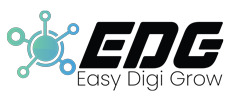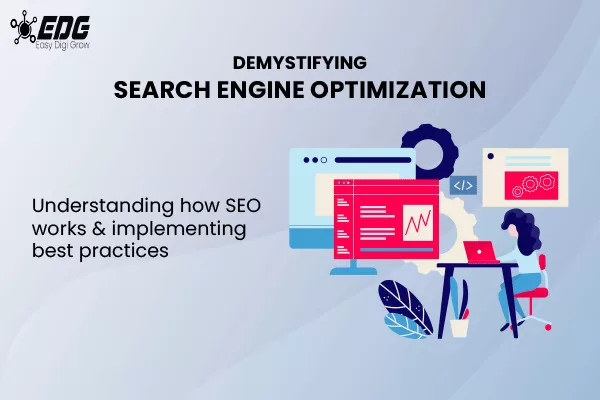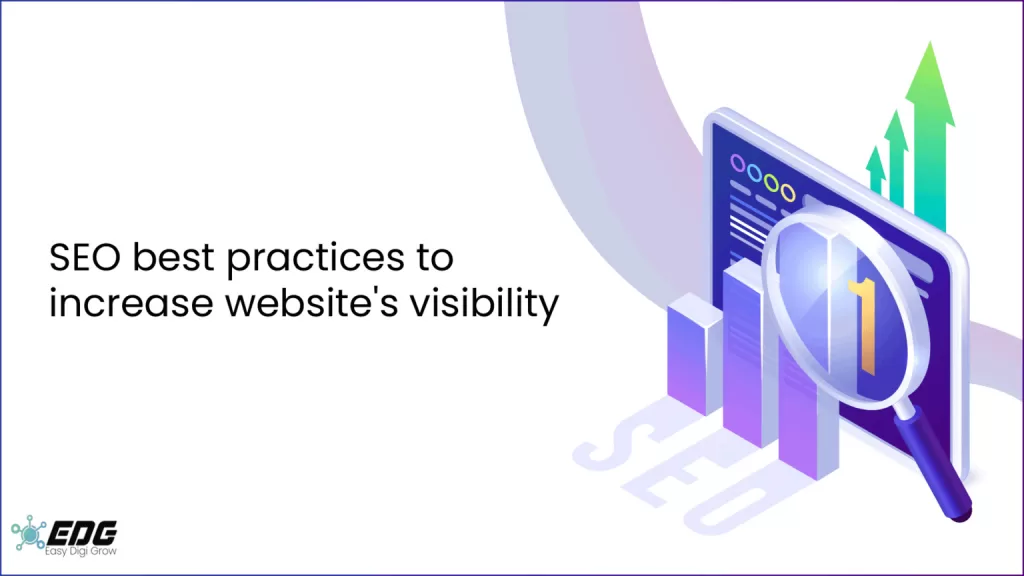Are you looking to unlock the full potential of your website and drive organic traffic? Dive into the world of search engine optimization strategies, where you can discover the keys to boosting your online visibility and attracting targeted visitors.
With effective SEO techniques, you can navigate the intricate algorithms of search engines, such as Google, and propel your website to new heights.
In this blog, we will demystify the art of search engine optimization, unraveling the fundamental components that contribute to higher search rankings. From keywords and meta tags to backlinks and site structure, we will guide you through the essential strategies that can maximize your SEO potential.
So, buckle up and get ready to unleash the power of search engine optimization for your online success.
Understanding the Fundamentals of SEO before knowing the top Search Engine Optimization Strategies
To lay a solid foundation for your SEO efforts, it’s crucial to understand the key components that contribute to a website’s search engine rankings
- Keywords are the backbone of SEO, acting as the bridge between user intent and your content. Perform comprehensive keyword research to discover the terms utilized by your target audience when searching for products or services similar to yours.
- Meta tags, including meta titles and meta descriptions, play a vital role in convincing users to click on your website in search engine results. Craft compelling and concise meta tags that accurately reflect the content of each page while incorporating relevant keywords to boost click-through rates.
- Backlinks serve as endorsements from other websites, indicating to search engines that your content is reliable and valuable.
- A well-structured website ensures seamless navigation for both users and search engine crawlers. It allows easy indexing of your content and enhances the overall user experience.
These factors, when combined, work together to maximize your website’s search engine optimization (SEO) potential and drive organic traffic to your site.
Optimize your website to appear in local search results with our Local SEO strategies guide
Importance of Search Engine Optimization
- Enhanced Visibility and Discoverability:
By comprehending the fundamentals of SEO, you gain insights into optimizing your website to rank higher in search engine results pages (SERPs). Keywords, meta tags, backlinks, and site structure all contribute to this process.
Moreover, when you implement these elements effectively, your website becomes more visible and discoverable by potential customers who are actively searching for products or services related to your business.
- Targeted Traffic Generation:
SEO enables you to attract organic traffic from users who are genuinely interested in what your business offers. Through keyword research, you can identify the search terms and phrases your target audience is using. By incorporating these keywords into your website’s content, you align your web pages with users’ intent and attract highly relevant traffic.
As a result, this targeted traffic increases the likelihood of conversion and improves your return on investment (ROI).
- Long-Term Sustainability:
SEO requires continuous effort rather than being a one-time task. Understanding the fundamentals allows you to create a solid foundation for your SEO strategy. By implementing best practices in keywords, meta tags, backlinks, and site structure, you build a sustainable approach that can withstand algorithm updates and changes in the digital landscape.
To summarize, this long-term sustainability ensures your website continues to attract organic traffic and maintains its visibility over time.
- Competitive Advantage
In today’s competitive online marketplace, businesses that grasp the fundamentals of SEO gain a significant advantage. By optimizing your website and content using SEO services, you can outrank competitors, appear higher in search results, and capture the attention of potential customers.
Thus, this advantage translates into increased brand exposure, customer trust, and ultimately, higher conversions and revenue.
- User-Centric Experience
SEO is not just about pleasing search engines; it is about creating a positive user experience. A well-structured website with intuitive navigation, fast loading times, and relevant content engages users and keeps them on your site longer.
However, by understanding the fundamentals of SEO, you can optimize your website to deliver a seamless experience that encourages users to explore further and take desired actions.
In conclusion, grasping the fundamentals of SEO empowers you to enhance your website’s visibility, attract targeted traffic, gain a competitive edge, and provide a seamless user experience.
By investing time and effort in understanding and implementing these fundamentals, you position your business for long-term success in the ever-evolving digital landscape.
Demystifying Search Engine Optimization: How Does It Work?
Google holds the dominant position among search engines. So, let’s delve into the inner workings of SEO by focusing on Google. Remember, these SEO practices apply to any search engine.
Picture Google as a thriving business with a mission to provide the best user experience. Who are these users? They are the ones searching for information and solutions.
To deliver relevant results, Google employs a powerful algorithm. It analyzes websites to match search queries with the most fitting results.
To succeed in SEO, your website must shine in the eyes of Google’s algorithm.
Google’s algorithm delves into your website’s content, structure, and relevance. It considers factors to determine search rankings. To gain an edge, optimize your website.
Think of your website as a virtual map. It should reflect your business with clear signposts like keywords, meta tags, backlinks, and a well-structured site.
As a small business owner, optimize your website using these SEO practices. Show Google your uniqueness and be a valuable resource for users.
In a nutshell, mastering SEO means understanding Google’s algorithm and optimizing your website for success.
Steal our Digital marketing solutions guide today!
Best SEO Practices for Increasing Visibility and Attracting Organic Traffic
Optimize your website for relevant keywords:
- Conduct thorough keyword research to identify high-impact keywords for your industry.
- Incorporate these keywords naturally into your website’s content, titles, headings, and URLs.
- By targeting these keywords, your website has a higher chance of appearing in search results when users are actively looking for products or services like yours.
Tap into long-tail keywords:
- Long-tail keywords are longer and more specific search queries.
- They may have lower search volumes but often result in higher conversion rates.
- Targeting long-tail keywords helps attract users who are further along the buying journey and are more likely to convert into customers.
Complement your SEO strategy with social media and content marketing:
- Incorporate SEO best practices into your content creation process.
- Optimize your blog posts, videos, and other media to attract organic traffic from search engines.
- By combining SEO with social media and content marketing, you can amplify the reach and impact of your marketing efforts.
Create high-quality, informative content:
- Develop valuable content that aligns with the interests and needs of your target audience.
- Use relevant keywords strategically within your content.
- Furthermore, high-quality content attracts and engages users, increases their time on site, and encourages sharing and linking, all of which contribute to improved organic visibility.
Build a strong backlink profile:
- Emphasize obtaining high-quality backlinks from reputable websites within your industry.
- Guest blogging, outreach, and content promotion are effective strategies for acquiring backlinks.
- Backlinks act as votes of confidence for your website, increasing its authority and improving search engine rankings.
Optimize your website’s user experience:
- Ensure easy navigation and a logical site structure for a seamless user experience.
- Improve your website’s loading speed to reduce bounce rates and improve user engagement.
- Moreover, a positive user experience leads to increased time on site, lower bounce rates, and improved search engine rankings.
Monitor and analyze your website’s performance:
- Use tools like Google Analytics and Search Console to track the effectiveness of your SEO efforts.
- Keep track of important metrics like organic traffic, conversion rates, and keyword rankings.
- Analyze the data to identify areas for improvement and make data-driven decisions to optimize your SEO strategy.
Additionally, by implementing these search engine optimization strategies, you can increase your website’s visibility, attract targeted organic traffic, and ultimately drive more conversions and business growth.
Search Engine Optimization (SEO) Trends and Future Considerations
Staying ahead in the world of SEO requires staying updated with the latest trends and future considerations. Let’s explore some key areas to focus on for maintaining a competitive edge:
- The Impact of ChatGPT SEO and AI:
With the increasing reliance on AI and machine learning algorithms, search engines are now leveraging these technologies to enhance search results and gain a deeper understanding of user intent.
To effectively adapt to these advancements, it is crucial to prioritize the creation of high-quality, relevant content that aligns seamlessly with the evolving landscape of AI-driven search algorithms.
- Voice Search and Mobile-First Indexing:
As voice assistants gain popularity and mobile usage continues to rise, it is imperative to optimize your website for voice search and ensure seamless mobile experiences.
To achieve this, incorporate conversational keywords, utilize structured data, and implement responsive design. These strategies will effectively cater to the increasing number of voice searches and mobile users, enhancing your overall visibility and user satisfaction.
- User Experience (UX) and Core Web Vitals:
In the ever-evolving world of search engine optimization (SEO), search engines have placed a significant emphasis on websites that offer exceptional user experiences. Factors such as page load speed, mobile responsiveness, and seamless navigation now play a vital role in determining search rankings.
It is crucial to pay close attention to these aspects to enhance user experience (UX) and meet the benchmarks set by Core Web Vitals. By prioritizing these factors, you can not only improve your website’s visibility but also ensure that visitors have a positive and satisfying interaction with your site.
Check out our guide for creating the best UX designs to make your website stand out from the crowd.
- Continuous Adaptation to Algorithm Updates:
In the dynamic world of SEO, it’s important to recognize that search engine algorithms are constantly evolving to deliver improved search results. To stay ahead, it is crucial to stay informed about algorithm updates and industry best practices.
As a result, you will be able to drive sustainable organic traffic to your website and achieve your business objectives. Thus, staying up-to-date with algorithm updates and industry trends is crucial for long-term search engine optimization success.
By staying informed and proactive in these areas, you can optimize your SEO approach, capitalize on emerging technologies, and deliver exceptional user experiences. Remember, the SEO landscape is ever-changing, and by keeping up with the latest trends, you position yourself for long-term success.
Conclusion
Understanding and implementing effective search engine optimization strategies is the key to unlocking the full potential of your website and driving organic traffic.
EasyDigiGrow, a leading SEO company in India, can help you navigate the intricate world of SEO and guide you toward online success. Don’t miss out on the power of search engine optimization – start optimizing your website today with EasyDigiGrow.
FREQUENTLY ASKED QUESTIONS
- What is organic traffic?
Organic traffic encompasses website visitors who arrive through unpaid (organic) search results. These visitors find your website by clicking on a search engine result page listing. Organic traffic is highly valuable as it indicates that users are finding your website relevant and trustworthy based on their search queries.
- What are LSI keywords?
LSI (Latent Semantic Indexing) keywords are terms and phrases that have semantic connections to your main target keywords. Search engines utilize LSI keywords to comprehend the context and significance of your content. Including LSI keywords in your content can help search engines better understand your content and improve your chances of ranking higher for relevant search queries.
- How can I build a strong backlink profile?
Building a strong backlink profile involves various strategies such as creating high-quality content that naturally attracts backlinks, guest blogging on relevant websites, participating in industry forums, and reaching out to other website owners for link opportunities. It’s important to focus on acquiring backlinks from authoritative sources within your industry.
- What methods can I use to track and evaluate the SEO performance of my website?
Utilizing tools such as Google Analytics and Google Search Console enables you to track and analyze the SEO performance of your website. These tools provide valuable data on metrics such as organic traffic, keyword rankings, click-through rates, and conversion rates. By regularly reviewing this data, you can identify areas for improvement and make informed decisions to optimize your search engine optimization strategy.
- What are the possible consequences of incorrect SEO practices?
Improper SEO practices, such as keyword stuffing, buying low-quality backlinks, or using black hat techniques, can have negative consequences for your website. Search engines may penalize your site by lowering its rankings or even removing it from search results altogether. It’s important to follow ethical and best practices in SEO to avoid these risks and build a sustainable online presence.
- How can I get started with search engine optimization (SEO) for my website?
To get started with SEO for your website, begin by conducting keyword research to identify relevant and high-impact keywords. Optimize your website’s content, meta tags, and site structure to incorporate these keywords and provide a positive user experience. Focus on building high-quality backlinks and regularly monitor and analyze your website’s performance to make data-driven optimizations. Consider partnering with a reputable SEO service provider like EasyDigiGrow to guide you through the process and maximize your SEO potential.
 seolounge
seolounge



